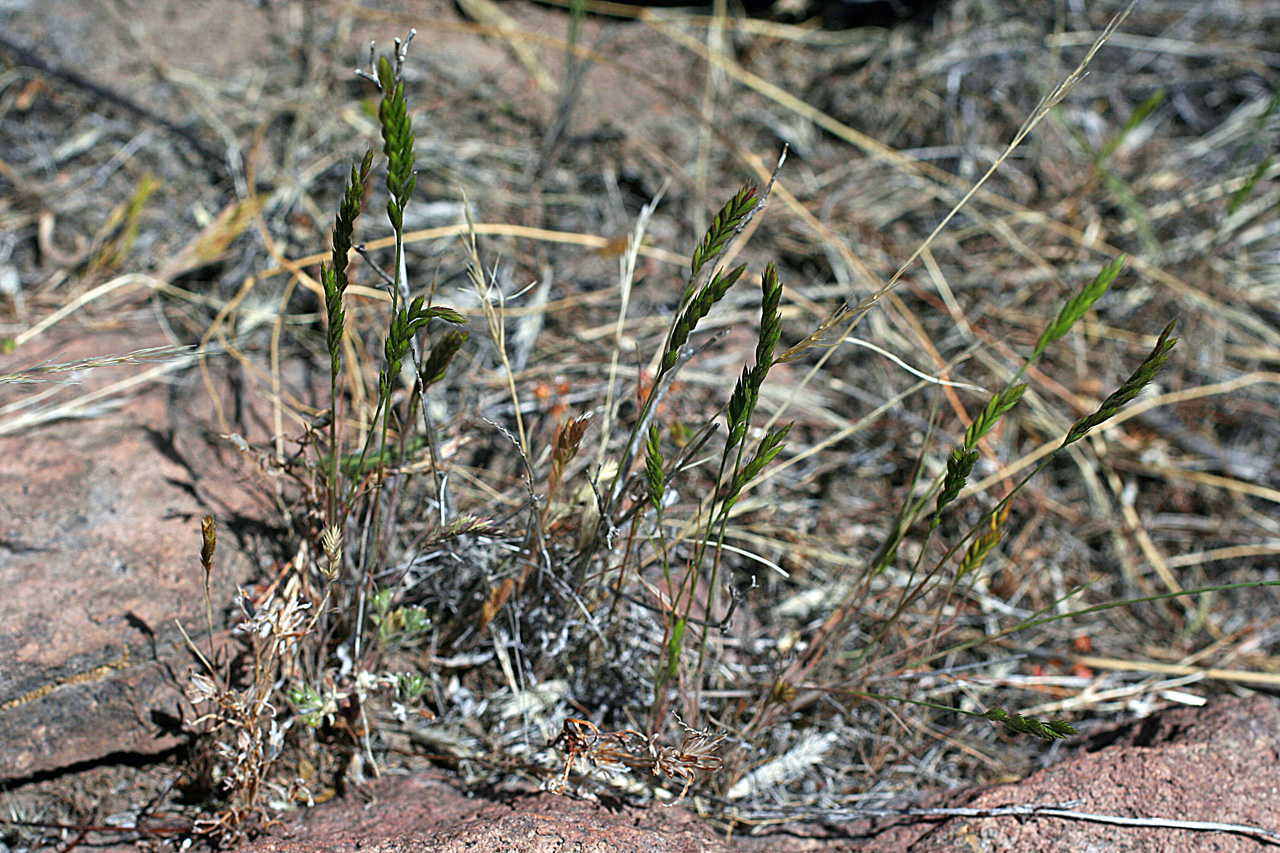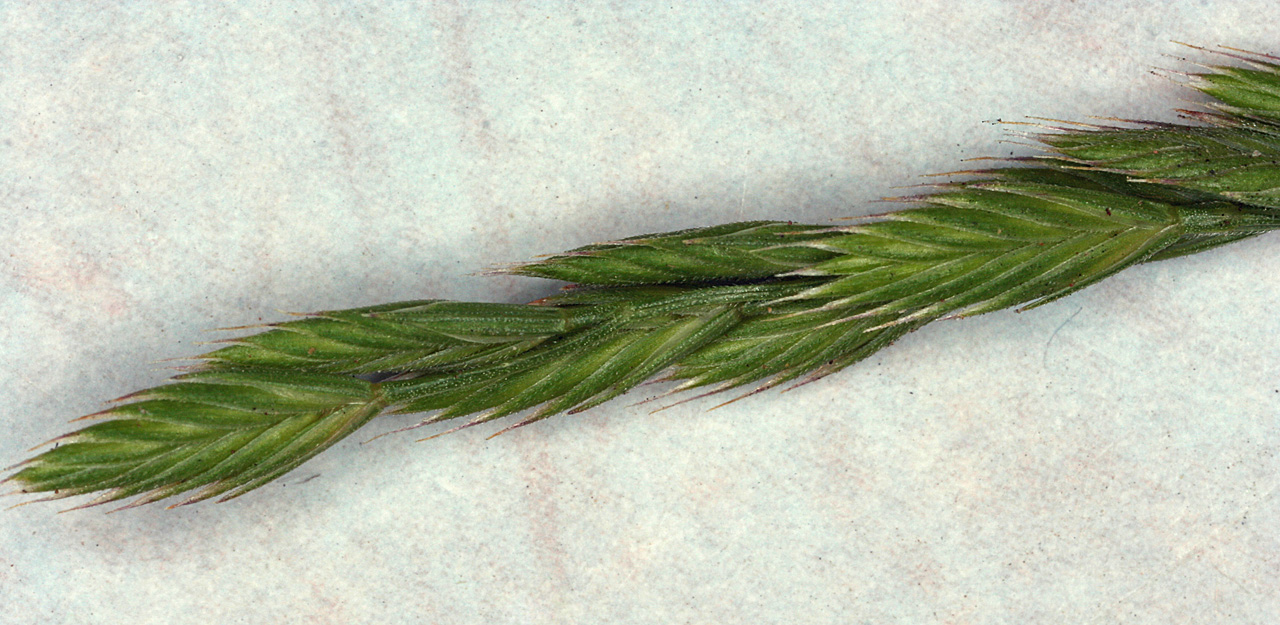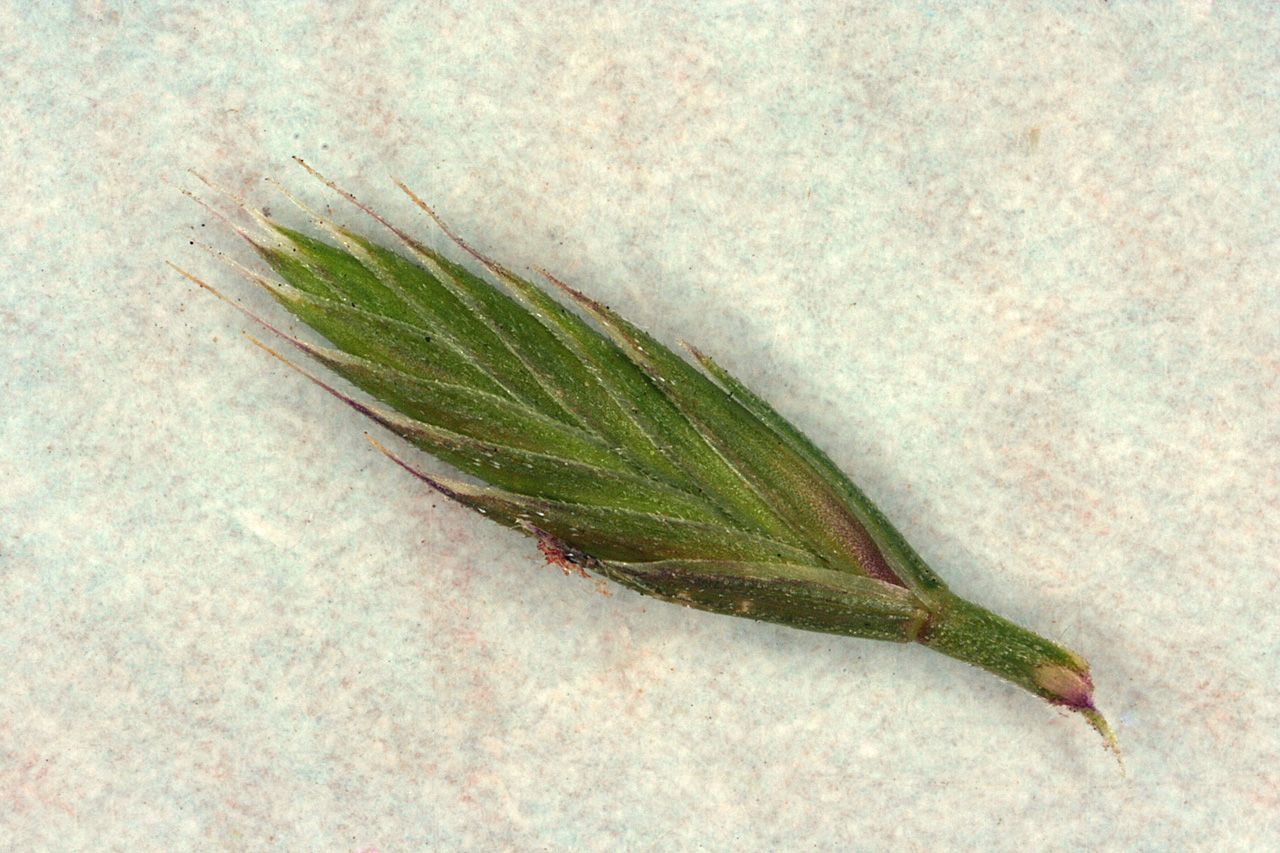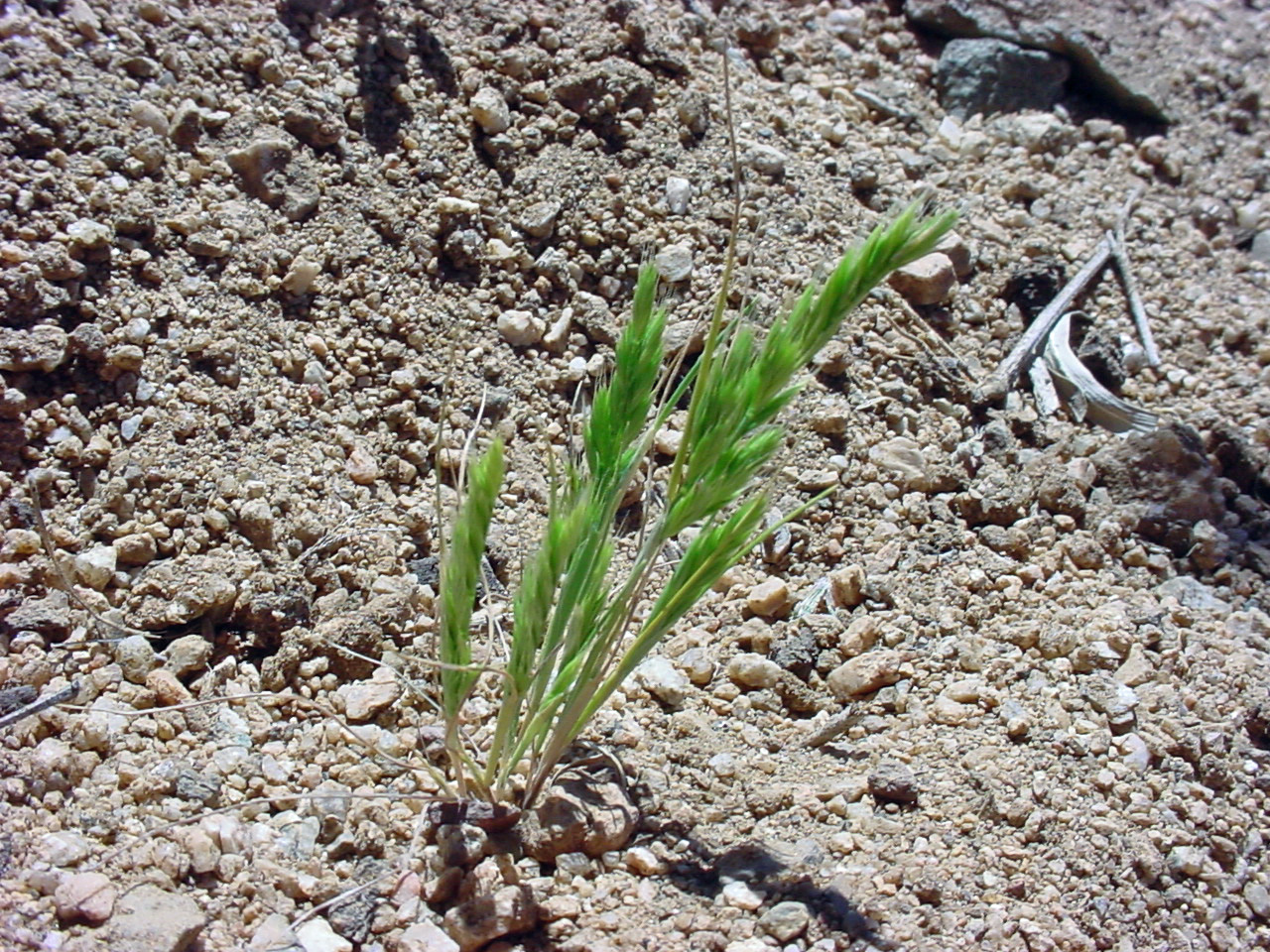Selected Plants of Navajo Rangelands
Fescue, six weeks
Tł’ohyilzólídijoolí
(a.k.a. Sixweeks fescue)

Six weeks fescue has solitary stems or stems in small tufts generally 3-12 inches tall. Under unusually wet conditions it may grow to 24 inches tall. It is erect or occasionally bent upward at the lower nodes. Six weeks fescue is shallow rooted and easily pulled from the soil.
Its seedhead is a panicle 1-4 inches long with short branches compressed against the rachis. Spikelets contain 5-15 florets. Glumes are unequal with the first being awl-shaped, sharp, and 1/4 inch long. The second glume is narrow, 1/8 to 1/4 inch long and sharp or with an awn tip. Lemmas are compressed, up to 1/4 inch long; smooth or rough to hairy; with inrolled, slightly membranous margins; and long-tapered to a short awn.
Leaf blades are narrow and boat-shaped. Sheaths are smooth or with backward hairs. Ligules are very short and auricles are absent.
It is adapted to a wide range of soils and soil textures but is most common on sterile, rocky ground and disturbed areas.
Associated species include cheatgrass, red brome, creosotebush, bursage, big sagebrush and storksbill.
Sixweeks fescue is generally so small that it provides little forage for large animals. It may be used by desert tortoise and small desert animals since it is common in their habitats. It provides little erosion control.
*Description courtesy of Utah State University's Range Plants of Utah.



Copyright 2018 New Mexico State University. Individual photographers retain all rights to their images. Partially funded by the Western Sustainable Agriculture Research and Education Program (westernsare.org; 435.797.2257), project EW15-023. Programs and projects supported by Western SARE are equally open to all people. NMSU is an equal opportunity/affirmative action educator and employer..
NMSU does not discriminate on the basis of age, ancestry, color, disability, gender identity, genetic information, national origin, race, religion, retaliation, serious medical condition, sex (including pregnancy), sexual orientation, spousal affiliation or protected veteran status in its programs and activities as required by equal opportunity/affirmative action regulations and laws and university policy and rules. For more information please read the NMSU Notice of Non-discrimination (opens in new window).

